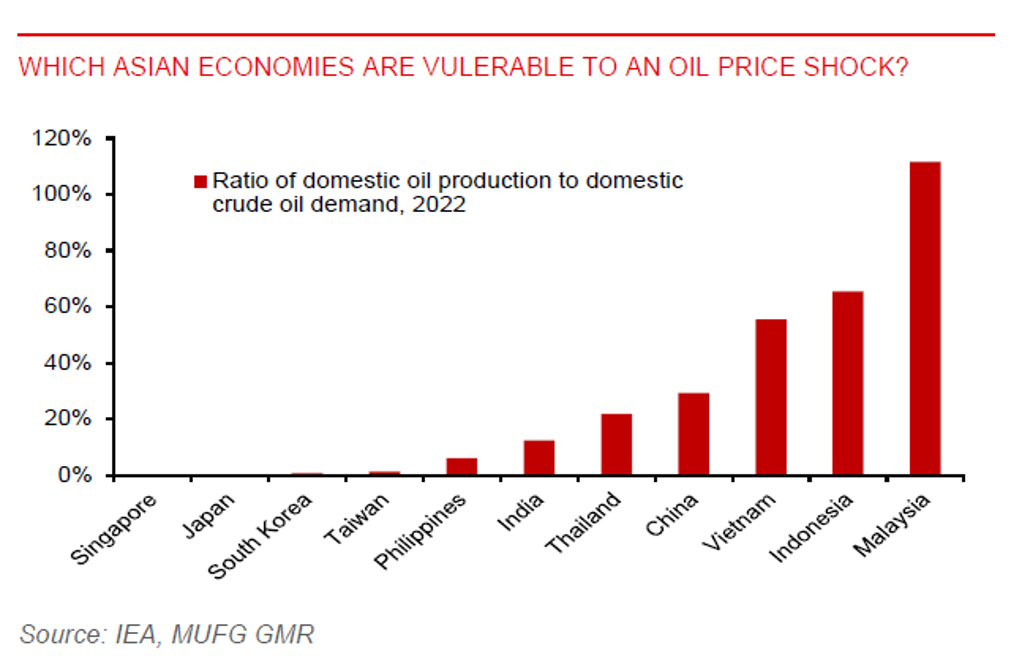Ahead Today
G3: Germany factory orders, Japan leading index
Asia: Thailand inflation, foreign reserves data for several economies
Market Highlights
The US dollar index extended its gains by 0.5% to 102.50 last Friday, on the back of a strong September nonfarm payroll print and rising Middle East tensions. Broad based losses were also seen across G10 currencies versus the US dollar. The US labour market has stayed resilient, adding 254,000 jobs in September, up from 142k in August and much stronger than the Bloomberg consensus for a 150k increase. The unemployment rate eased to 4.1% from 4.2% in August. And the average hourly earnings were up by 0.4%mom, unchanged from the pace in August and faster than market expectation for a 0.3% increase. From a year ago, average hourly earnings rose 4% vs. 3.8% in August and market expectation of 3.8%. Markets have thus scrapped bets of a 50bps US rate cut in November and are now expecting only a 25bps rate cut. Markets have also priced in another 25bps cut in the December FOMC meeting that would bring the fed funds rate to 4.25%-4.50% by end-2024.
Meanwhile, Brent prices rose by more than 8% to close at US$78.05/bbl over the past week amid escalating Middle East tensions. With tensions not showing signs of abating, a spike in oil prices would worsen the terms of trade of many Asian economies, putting renewed downward pressure on Asian currencies. And in Japan, new Prime Minister is planning for a package of economic measures that could help revive growth and fight deflation.

Regional FX
Asia ex-Japan currencies broadly weakened against the US dollar last Friday, with KRW (-1.9%) leading losses in the region. US dollar has extended its gains, market sentiment has turned sour amid escalating tensions in the Middle East, while Brent prices has risen by more than 8%. Notably, Asian economies with limited domestic production of crude oil, and thus have a high reliance on oil imports for their energy needs, will be disproportionally vulnerable to an oil price shock. These economies include Singapore, Japan, South Korea, Taiwan, Philippines, and India.
Meanwhile, Philippines inflation eased to a four-year low of 1.9%yoy in September, which is below the BSP’s 2%-4% inflation target range. BSP Governor Eli Remolona sees around 175bps of rate cuts through 2025, bringing the BSP policy rate to 4.50% by end-2025. In Singapore, retail sales rose 0.6%yoy in August, thanks to strong motor vehicle sales. Excluding motor vehicles, retail sales fell 1.5%yoy. On a sequential basis, retail sales were up by 0.7%mom.
